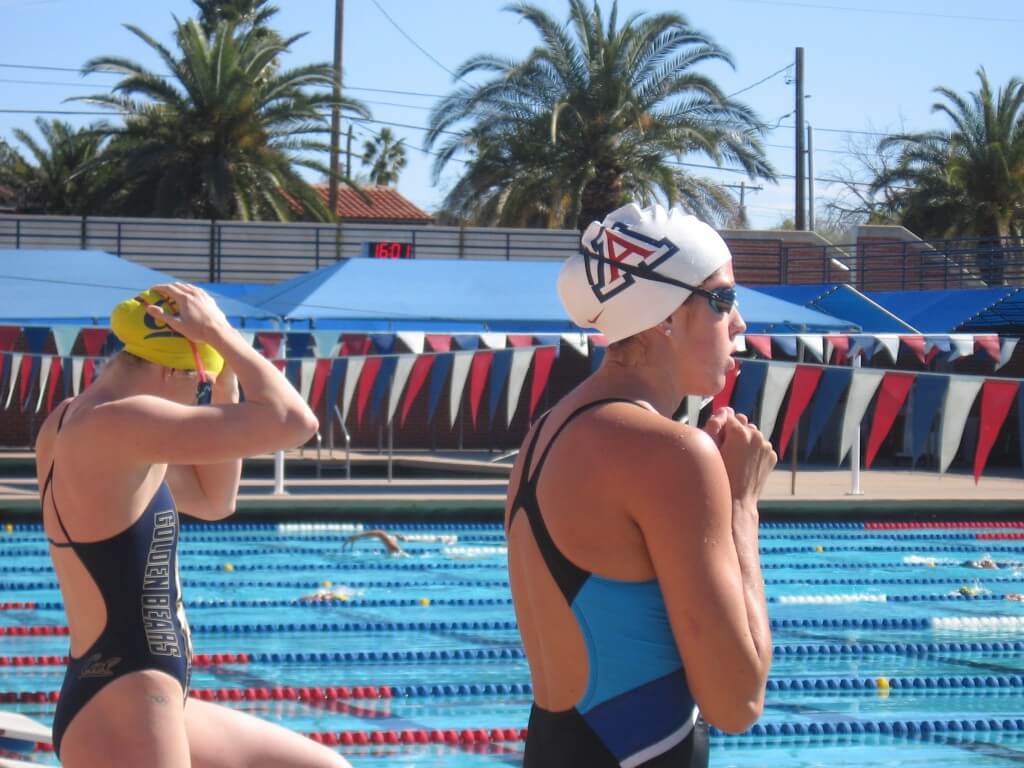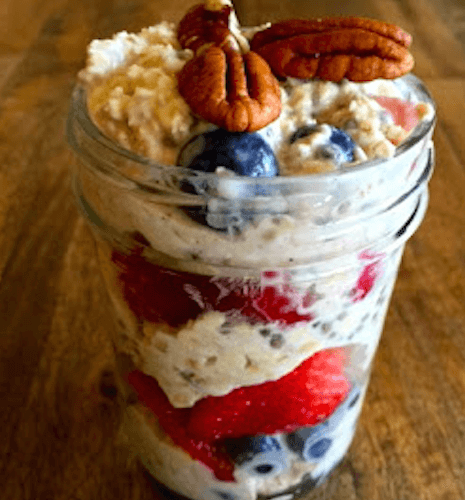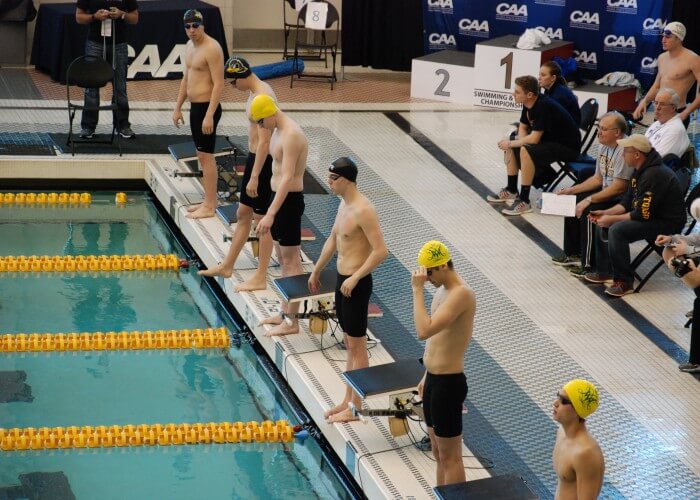3 Ways to Stay Fresh for Dual Meets

By Justine Ress, Swimming World College Intern
Dual meet results are often overlooked or forgotten by the end of a college season. However, they can serve as great check-ins throughout the season. Here are a few simple ways to ensure you get the most out of your dual meets this season.
1. Set a new goal for each meet.
It is easy to set goals at the beginning of a season when you are not exhausted from morning practice, or still going through conditioning. When I swam in college I always set three goals at the beginning of the year. One for dual meets, one for conference, and for NCAAs. But I never adjusted my times for each dual meet along the way, and this usually ended in disappointment and frustration.
For many, October through November is when you build a base for the end of the season taper meets. Naturally, dual meet times usually reflect the increased workload. It may mean a slightly slower time in your best event, or maybe you’ll do better in several events rather than just one. Everyone is different. Either way, mid-season times deserve as much attention as championship goals. Adjust dual meet goals accordingly based on your pool and dryland training cycles.
2. Plan for travel.

Photo Courtesy: Shelby Iava
Any college swimmer will tell you that being on the road can be daunting, especially during the school year. Dual meets are hectic enough, and the last thing you need to do is procrastinate that lab report or 10-page paper until you get back from the meet. If you have ten hours on a bus, or even just two, bring homework with you.
I’m not naïve. I know what it is like on a travel bus or at the hotel. The only thing you want to do is get in ‘meet mode,’ and have fun with your teammates. Some ways to get around this urge to hangout could be by finding teammates who are taking the same or similar classes. Study in the lobby of the hotel where there are fewer distractions, or sit up at the front of the bus with the coaches. I am pretty sure they are not binging on candy and watching Pitch Perfect.
3. Last but definitely not least, pay attention to your nutrition.

Photo Courtesy: Tasija Karosas
Speaking of candy binges, they are probably not the best idea for dual meet fuel. Don’t get me wrong, I am completely guilty of depriving my body of proper nutrition during meets. No joke, I once brought a Big Mac meal on to the bus before a dual meet. I thought, “If I have to sit on this bus for seven hours, I’m going to eat whatever I want.” All that did was make me feel gross and heavier in the water when it came time to race (big surprise there).
I eventually learned from that mistake. It took me until my senior year to realize the importance of nutrition, especially leading up to and during a meet. Dual meets are fast-paced, and are both mentally and physically draining. There is no way to succeed if all you ate before was fast food or candy.
Before a meet, hit up the grocery store or ask an upperclassmen to take you so that you can get healthy snacks for the road. Things like apples with peanut butter, granola bars, and bagels with cream cheese are great options because they provide the necessary carbohydrates, protein, fiber and healthy sugar. I found it better to be on the safe side, and bring some of your own food because you never know what snacks will be available on the road, or if all of the meals will be to your liking.
This past year, I didn’t pack any food for NCAAs. I quickly realized I needed some of the foods I was used to eating. I asked one of my coaches if we could make a stop at the nearest Whole Foods (I was very lucky to have extremely accommodating coaches, I know). My coach took me after practice, and I got everything I needed for the rest of the week. Simply having food I enjoyed made me feel less stressed, happier, and better in the water.
It is important not only to be prepared with food you know and like, but it is also important to communicate with your coaches and trainers about your needs. Most of the time, they will do anything to make sure their athlete is fully prepared.
I understand there are different situations and resources for every swimmer. However, with a little goal setting, time management, and proper nutrition, dual meet season does not have to be something you dread. A little planning will go a long way.





Brittany Archer
Fay Salam